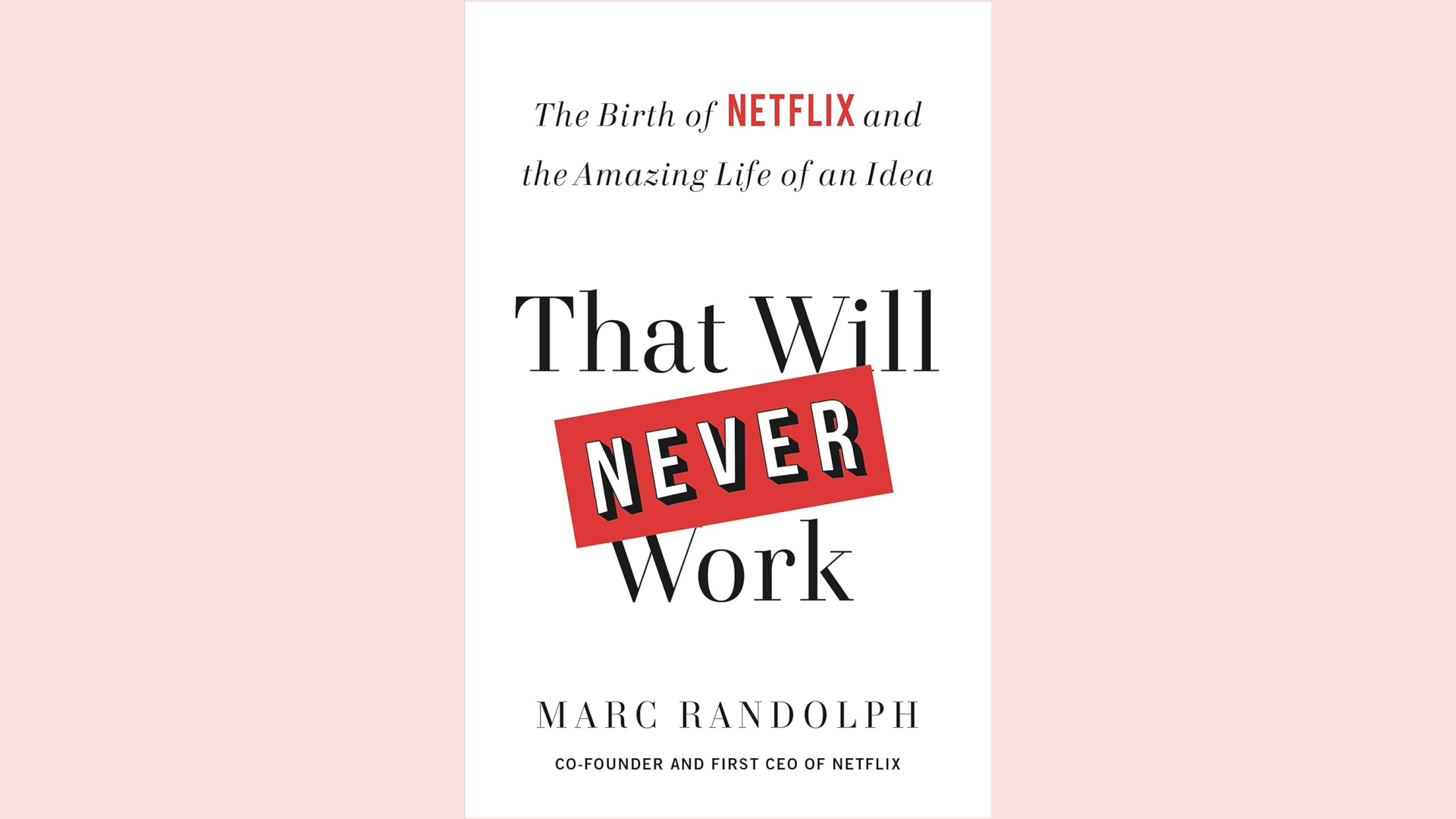Summary: That Will Never Work by Marc Randolph

That Will Never Work by Marc Randolph is an inspiring account of Netflix's early days, chronicling its transformation from a fledgling idea to a disruptive force in the entertainment industry. Randolph’s narrative offers valuable insights into the entrepreneurial journey, emphasizing the significance of innovation, perseverance, and effective leadership.
The Origins of an Idea
The story of Netflix begins with a simple yet revolutionary idea: renting DVDs by mail. Marc Randolph and Reed Hastings envisioned a convenient alternative to traditional video rental stores, aiming to create a customer-centric model prioritizing ease of access and variety. This initial concept laid the groundwork for what would become a global phenomenon.
The inspiration struck when Hastings was charged a $40 late fee for a rented movie, leading them to think about a model without late fees. Randolph and Hastings discussed the potential for an online rental service to eliminate such inconveniences.
Innovation and Disruption
Netflix’s journey is a testament to the power of innovation. The company redefined how people consume media by challenging the status quo and embracing technological advancements. Randolph underscores the importance of staying ahead of the curve and continuously evolving to meet changing consumer demands.
“Ideas are cheap. Execution is everything.” - Marc Randolph
Introducing a subscription-based model, which allowed customers to rent multiple DVDs per month for a fixed fee, was a groundbreaking innovation that distinguished Netflix from its competitors. This model provided value to customers and ensured a steady revenue stream for Netflix.
Overcoming Challenges
Building Netflix was not without its challenges. Randolph and his team faced numerous obstacles, from logistical to financial constraints. The book highlights the necessity of resilience and the ability to pivot in response to setbacks. Each failure was a stepping stone, guiding the company closer to its ultimate success.
Early on, Netflix struggled with shipping delays and damaged DVDs, which led to the implementation of more robust packaging and streamlined logistics. They invested in developing a proprietary software system to manage their growing inventory and improve customer experience.
Leadership and Team Dynamics
Effective leadership and a strong team dynamic were crucial to Netflix’s growth. Randolph emphasizes fostering a collaborative culture where diverse perspectives are encouraged and everyone is aligned toward a common goal. His insights into leadership provide a blueprint for aspiring entrepreneurs aiming to build cohesive and motivated teams.
“If you’re not prepared to be wrong, you’ll never come up with anything original.” - Marc Randolph
Randolph’s decision to hire individuals who were not only skilled but also aligned with the company’s values helped create a unified and driven team. He fostered an environment where experimentation was encouraged, and failures were seen as opportunities for learning.
Perseverance and Adaptability
The entertainment industry's ever-changing landscape demanded adaptability. Randolph’s account demonstrates that success often requires unwavering perseverance and the willingness to adapt strategies in the face of new challenges. The ability to stay flexible and open to change was instrumental in Netflix’s rise to prominence.
Transitioning from a DVD rental service to a streaming platform required significant investment and technological innovation, showcasing Netflix’s ability to adapt to evolving consumer preferences. This shift allowed them to stay relevant in an increasingly digital world.

Expanded Netflix Insights and Analysis
Customer-Centric Approach:
One key reason for Netflix’s success was its focus on customer satisfaction. Randolph and Hastings constantly sought feedback and made changes based on user preferences. This approach built a loyal customer base and provided a competitive edge.
Netflix’s personalized recommendation system, which uses algorithms to suggest movies based on viewing history, directly resulted from their commitment to enhancing user experience.
Risk-Taking and Experimentation:
Randolph emphasizes the importance of taking risks and experimenting with new ideas. This mindset was crucial for Netflix’s innovation and growth. They were not afraid to pivot or abandon ideas that didn’t work, which kept the company agile and responsive.
The decision to produce original content, starting with the series House of Cards, was a bold move that paid off. It marked Netflix’s transition from a content distributor to a content creator, significantly boosting its subscriber base.
Strategic Partnerships:
Forming strategic partnerships was another critical factor in Netflix’s expansion. Collaborations with technology companies and content creators helped Netflix scale quickly and efficiently.
Partnering with device manufacturers to embed Netflix apps on smart TVs and streaming devices made it easier for consumers to access their service, contributing to their rapid growth.
Author Biography: Marc Randolph
Marc Randolph is a veteran Silicon Valley entrepreneur, advisor, author and investor. He is best known as the co-founder and first CEO of Netflix. Randolph’s career spans over four decades, during which he has founded or co-founded several successful startups. His work as an executive at various companies has equipped him with a wealth of experience in business development, marketing, and innovation. Beyond his entrepreneurial endeavors, Randolph is a keynote speaker and mentor dedicated to sharing his knowledge and inspiring the next generation of business leaders.
Practical Tool: Step-by-Step Guide to Launching a Startup
- Identify a Problem: Pinpoint a specific problem that needs solving.
Example: Difficulty in accessing a wide range of films without physical rental stores.
- Conduct Market Research: Validate your idea through thorough market research.
Examples: Surveys, focus groups, and testing prototypes.
- Build a Minimum Viable Product (MVP): Develop a basic version of your product to test with early adopters.
Example: Initial website for DVD rentals.
- Assemble a Strong Team: Gather a team with diverse skills and a shared vision.
Example: Hiring experts in logistics, technology, and marketing.
- Launch and Iterate: Release your MVP and gather feedback to refine your product.
Example: Adjusting rental policies based on customer feedback.
- Scale and Adapt: Expand your business model while adapting to market changes.
Example: Transitioning from DVDs to streaming services.
